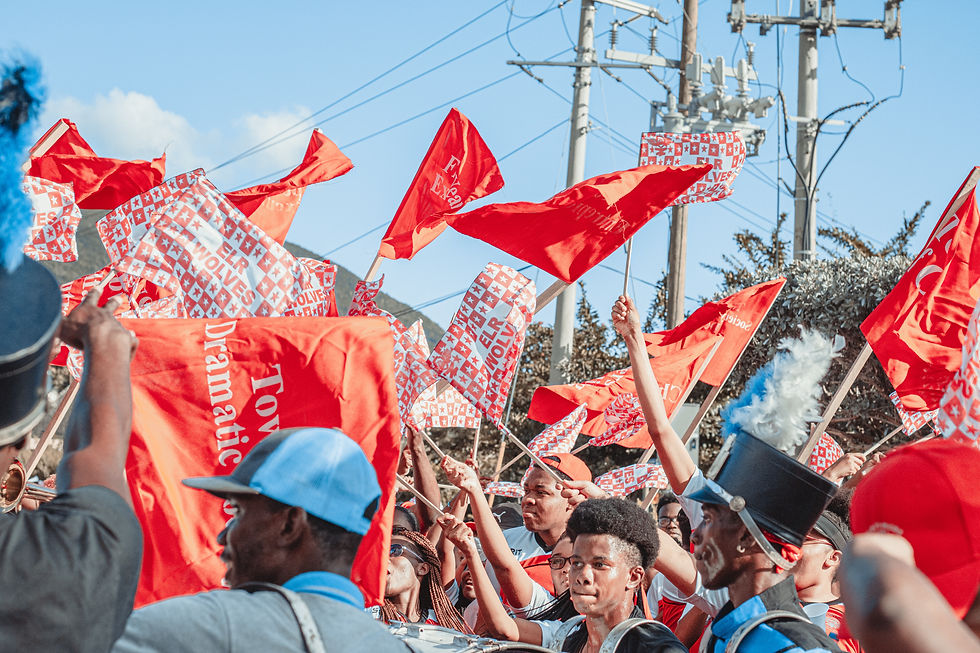Burkina Faso: What Comes Next After the French Forces' Expulsion?
- Aug 18, 2023
- 4 min read
By: Khaled A. BaRahma

Credit by: medium.com
Weeks after Burkina Faso's military junta sent away hundreds of French troops, indications emerged that the nation might be gravitating towards Russia, especially towards the mercenary organization known as the Wagner Group. A notable hint came in February when Burkina Faso's officials sought nearly $30 million in gold from its mines, citing "public necessity." The exact use of this gold remains uncertain, but there are suspicions that it might be allocated to engage mercenaries from the Wagner Group, which already has a foothold in other conflict-ridden African nations such as Mali and the Central African Republic.
"Perhaps by chance, the Burkinabe's request for gold acquisition came shortly after expelling the French and shifting towards Russia," remarked William Linder, a former CIA operative and leader of 14 North Strategies, a risk advisory firm focusing on Africa. "However, this development raises concerns among investors that the government might backtrack on current agreements, puƫng established industrial mining operations at a disadvantage to fund Russian military contractors."
The Burkina Faso government refutes any claims of employing Wagner mercenaries. However, they anticipate Russian trainers to provide guidance on utilizing equipment recently acquired from Russia, shared Mamadou Drabo, the executive secretary of Save Burkina, a civic organization backing the military junta. "In light of the bilateral ties between Burkina and Russia, we requested the Russian government to dispatch trainers for our forces," he stated, emphasizing that these instructors will provide knowledge on weaponry, military strategies, and cultural aspects.
According to a report by the Global Initiative Against Transnational Organized Crime, the armament sales and military collaboration pacts between Russia and certain African nations have occasionally foreshadowed the arrival of Wagner's mercenary forces. Analysts note that nations employing fighters from the Wagner Group typically label them as "Russian instructors." Wagner, established by Yevgeny
Prigozhin, a Russian millionaire entrepreneur linked to President Vladimir Putin, has maintained roughly 1,000 troops in Mali for over a year.
During January, Burkina Faso commanded the withdrawal of around 400 French special forces stationed within its borders, effectively terminating military ties with France. This decision came in the midst of escalating violence that has claimed numerous lives and thrown the previously tranquil nation into turmoil. Alongside the expulsion of these special forces, the government took further action in February by instructing all French military personnel collaborating with Burkina Faso's armed forces and administration to depart. This move severed a military agreement with France that dates back to 1961, as detailed in a confidential document from the Ministry of Foreign Affairs, which was reviewed by The Associated Press
Since 2013, France has maintained troops in the Sahel region of West Africa, initially justifying their presence by assisting in the removal of extremists in northern Mali. However, they are now encountering increasing resistance from local communities, who argue that despite France's assurances, extremist attacks have been on the rise. While Burkina Faso's junta asserts no animosity toward France, it aims to broaden its military alliances in the battle against extremists, notably leaning toward Russia.
"This pattern has been observed in multiple nations. The sequence of events has unfolded in places like CAR and Mali, resembling a series of falling dominos," stated Sorcha MacLeod, a representative of the United NaƟons working group focused on mercenary usage. She added, "A void has emerged in regions where France previously held influence, and Russia's expansionist aspiraƟons in Africa are becoming evident. This situation is contributing to regional destabilization."
The Arrival of Wagner's Mercenaries:
If the presence of Wagner mercenaries in Burkina Faso happened, this would escalate the potential for human rights abuses, encompassing acts like war crimes and crimes against humanity. Advocacy organizations and local populations have already leveled accusations against the junta for a surge in extrajudicial killings of civilians since Traore assumed control in September.
Wagner Group mercenaries have solidified Russia's influence in no fewer than six African nations. This year, the United States classified the group as a notable transnational criminal organization, while the European Union imposed sanctions due to their involvement in human rights violations across Central African Republic, Sudan, and Mali. Frequently, African nations have compensated the Russian group for their mercenary operatives by granting Wagner access to valuable natural resources, including mining rights.
The government of Burkina Faso has affirmed that there are no intentions to engage Wagner for their services. Instead, they are focused on bolstering national security against extremist forces by enlisting and equipping tens of thousands of volunteer combatants, aptly referred to as their indigenous Wagner force. Traore emphasized this stance during a state media interview in February, stating, "Our initial Wagners are the civilian volunteers we are currently enlisting."
Numerous residents express a preference for collaborating with Western nations such as France, as opposed to aligning with entities like Wagner. However, they assert that acquiring the necessary weaponry from the French remains implausible, thereby limiting their alternatives. A soldier, who wished to remain anonymous due to lacking media authorization, conveyed, "The French possess an array of resources, including aircraft, yet their assistance is lacking. Their presence seems primarily motivated by self interest."
Lastly, a sense of reassurance remains elusive for a significant portion of Burkina Faso's populace. Similar to Wagner's mercenaries, the volunteers who collaborate with the country's armed forces have faced allegations from civilians and human rights organizations of perpetrating grave acts, including extrajudicial executions and the abduction of individuals suspected of cooperating with extremist groups.



































Comments